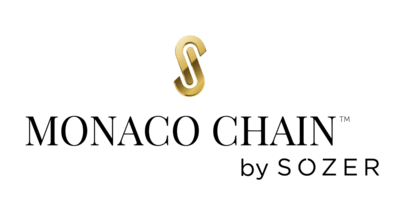In today’s digital age, where social media platforms and online communities thrive, consumers have a powerful voice that can shape brands’ reputations and influence purchasing decisions. As a marketer, it’s essential to tap into these conversations and gain valuable insights to inform your marketing strategy. In this blog post, we will explore the power of social listening and how it can provide you with a deeper understanding of your audience and drive better results.

What is Social Listening?
1.1 Defining Social Listening
Social listening is the process of monitoring and analyzing online conversations to gather insights and extract meaningful information.
It involves tracking mentions, hashtags, keywords, and sentiment analysis across various social media platforms, forums, blogs, and review sites.
1.2 Why is Social Listening Important?
Social listening helps you understand what your audience is saying about your brand, products, and competitors.
It provides real-time feedback, identifies trends, and uncovers opportunities for engagement, reputation management, and customer service improvements.
The Benefits of Social Listening
2.1 Audience Understanding and Persona Development
By listening to online conversations, you can gain a deeper understanding of your target audience’s needs, preferences, pain points, and aspirations.
Use this information to create detailed buyer personas and tailor your marketing messages and strategies accordingly.
2.2 Competitive Analysis and Market Research
Social listening allows you to monitor your competitors’ activities, track industry trends, and identify market gaps or emerging opportunities.
Stay one step ahead by analyzing competitors’ customer feedback, sentiment, and product/service improvements.
2.3 Brand Reputation Management
Monitoring online conversations helps you proactively manage your brand’s reputation by addressing customer complaints, resolving issues, and acknowledging positive feedback.
Engage with your audience, show transparency, and build trust by responding promptly and genuinely.

2.4 Campaign Measurement and Optimization
Social listening provides real-time feedback on your marketing campaigns, allowing you to gauge their effectiveness and make data-driven optimizations.
Identify what resonates with your audience, adjust messaging, and capitalize on successful content or engagement strategies.
How to Implement Social Listening
3.1 Identify Relevant Keywords and Hashtags
Start by identifying keywords, hashtags, and phrases relevant to your brand, industry, and target audience.
Use social listening tools to track these keywords and analyze conversations around them.
3.2 Choose the Right Social Listening Tools
There are numerous social listening tools available, ranging from free options like Google Alerts and social media platform analytics to paid tools like Brandwatch, Hootsuite, or Mention.
Choose a tool that aligns with your budget, objectives, and desired level of analysis.
3.3 Analyze and Extract Insights
Once you have collected data from social listening tools, it’s time to analyze and extract actionable insights.
Look for patterns, trends, sentiment analysis, and customer feedback that can guide your marketing decisions.
Q1: Can social listening be used for lead generation?

Social listening can provide insights into your target audience’s needs and pain points, helping you identify potential leads and tailor your lead generation strategies accordingly.
Q2: How often should I conduct social listening?
The frequency of social listening depends on your brand’s online presence, industry, and objectives. It’s recommended to conduct regular monitoring and adjust the frequency based on your specific needs.
Q3: Which social media platforms should I focus on for social listening?
Focus on the platforms where your target audience is most active. Common platforms include Facebook, Twitter, Instagram, LinkedIn, and relevant industry-specific forums or communities.
Q4: Can social listening help with crisis management?
Absolutely. Social listening enables you to detect and address potential crises by monitoring conversations, identifying negative sentiment, and responding promptly to mitigate reputational damage.
Conclusion:
Social listening is a powerful tool that allows marketers to gain insights from online conversations and harness them to inform their strategies. By understanding your audience’s needs, monitoring competitors, managing your brand’s reputation, and optimizing campaigns, you can stay ahead in the ever-evolving digital landscape. Embrace the power of social listening, and unlock valuable insights that will drive your marketing efforts to new heights.
Call to Action:
Do you want to learn more about the latest digital updates and strategies? Subscribe to our newsletter and stay ahead of the curve in the ever-evolving world of marketing!
Don’t forget to visit d-dat.com for more quality and useful blog posts!







